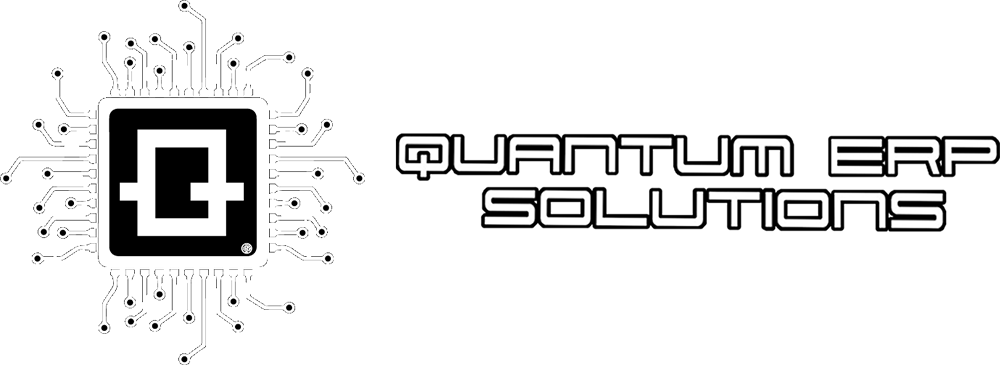How to Choose the Right ERP System for Your Business
Posted on 30th October, 2023

While the search for the right ERP system can be exciting, it can also be complex and stressful.
Businesses need reliable software that can seamlessly integrate core business functions. They are also looking for the best of the best when it comes to software and a vendor who can provide top-notch service and support. It can be challenging to know how to select your ERP (Enterprise Resource Planning) system.
A quick search conjures up a huge list of software and vendors. How can organizations be sure they have found the right match?
We are here to help you take the guesswork out of the process by sharing five steps that can help organizations select the right ERP system.
1. Determine Your ERP Needs
Firstly, businesses have to evaluate their greatest needs for selecting an ERP system. Organization leaders should balance present pain points with future needs. Some questions they can ask to reveal pain points within their company include:
- financial reporting: how will we gain reliable financial reporting that is accurate and timely?
- analytics and data: how much visibility will we have when it comes to sales, production, and procurement processes?
- user experience: how intuitive will the software be, and how will it affect the productivity of the employees?
- automation: can we use the software to automate job costing, sales orders, and supply chain management?
- mobile accessibility: how accessible will the software be for mobile users who need real-time access in the field?
Organization leaders can also consider the places within the business that need to be updated, such as finance, sales, or operations, and take a moment to determine what they do not know. It might also be time to look to others to learn what challenges they are facing daily.
2. Select Internal Sponsors
Decision-makers should also encourage ownership and get buy-in from key stakeholders and influencers by appointing an internal sponsor from each area that might be affected by the ERP investment. The departments they should consider include:
- accounting
- inventory
- human resources
- sales
The internal sponsors must be aligned with big-picture business goals, favor digital innovation, and be willing to be held responsible for adoption within their departments. Each business area will offer a unique angle on their pain points, essential needs, and future needs. Considering the needs of your team can take time early on in the process, but it can save time, resources, and frustrations in the long run.
3. Evaluate Your ERP Options
Since there is no shortage of ERP software options, it can be overwhelming trying to focus on the top two or three. Leaders do not have time to wade through a sea of online brochures and endless phone calls. Luckily, key questions can help decision-makers narrow the field, saving time and headaches.
- industry experience: what ERP vendors are widely used in our industry, and what degree of expertise do they have specific to my industry?
- customizations and applications: does the ERP system allow for the development of additional applications so we can customize it for our specific organizational needs?
- flexibility: how flexible do we need the ERP software to be now and in the future, and what degree of customization is necessary to work in my industry?
- reporting: how will the ERP system support industry-specific compliance requirements and reporting?
Among the numerous available ERP systems, NetSuite is often the ideal solution for many organizations. It is a cloud-based software that streamlines and automates business operations for better efficiency. Instead of relying on several different applications for business departments and functions, everything can be managed in one place. The results are cost savings, the ability to make better decisions faster, and the capacity to grow without needing to slow down to upgrade technology.
4. Sort Through ERP Vendor Options
Once business leaders have narrowed the field to the top two or three vendors, the next step is to secure a vendor that offers an efficient implementation process with continuing support. While many vendors can provide a quick launch time frame, it is important to consider all phases of the implementation process, from pre-launch and post-launch to ongoing support. Some important factors to consider when selecting your ERP vendor include:
- industry acumen: does the vendor have a deep bench of industry specialists who understand the specific needs and goals of our business?
- customization abilities: will the ERP vendor have the knowledge to customize and add applications to meet my organizational needs?
- implementation know-how: is the launch time frame more about hitting a date or providing world-class service?
- training offerings: what additional resources will be offered to help my employees enjoy a smooth user experience?
5. Select Your Vendor and ERP System
Once decision-makers have done due diligence to prioritize their organization's needs, determine who within the business will help, and identify which systems and vendors are best to meet business goals, it is time to decide. Still, there is one more key area to consider - is the vendor and its solution reputable? What experience does the ERP vendor have? Will it be able to anticipate problems before they occur? How long has the vendor supported the ERP system? Are there case studies on the selected ERP system we can use to better understand its real-world applications?
If a company chooses poorly when it comes to the ERP system, it is less likely to gain the business process efficiencies it was looking for. Furthermore, poorly chosen ERP software can cause operational issues as users try to shoehorn existing workflows into a system that is not properly designed to run them. Therefore, it is crucial to pay attention to all the above steps when selecting the ERP system for your business.
Quantum ERP Solutions can efficiently help you implement the best ERP system for your business
Our expert team provides certified resources in novel business applications covering an extensive range of technology stacks. We work together with reliable software companies to ensure the implementation, customization, and automation of Epicor ERP, and Oracle NetSuite.
At Quantum ERP Solutions, we can efficiently assist you throughout every project phase to achieve results that will improve operational efficiency. We also offer project management, functional consultancy, technical consultancy, development, and quality assurance. If you are thinking of implementing an ERP system for your organization, you can rely on us.
